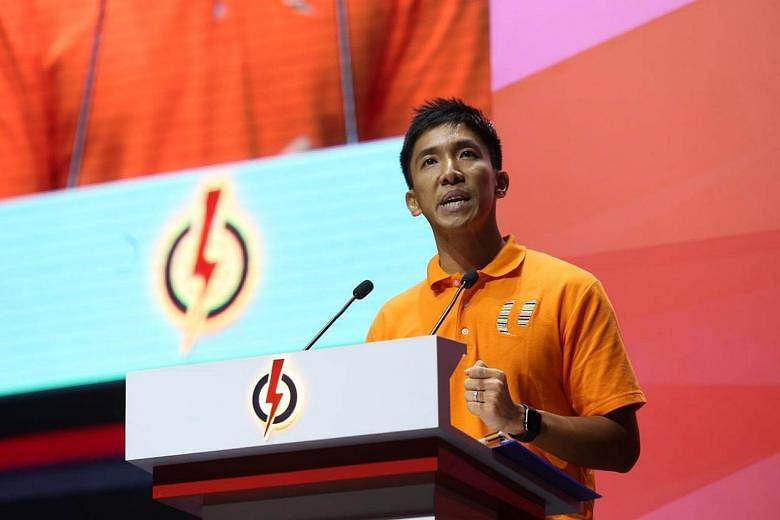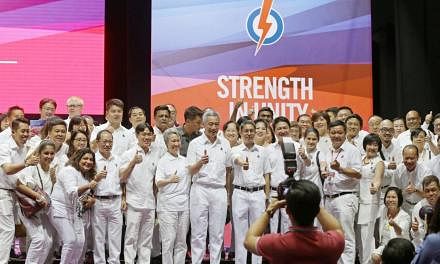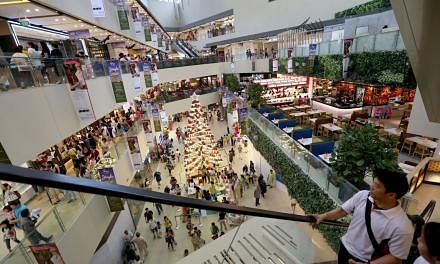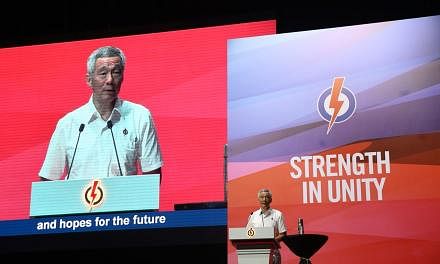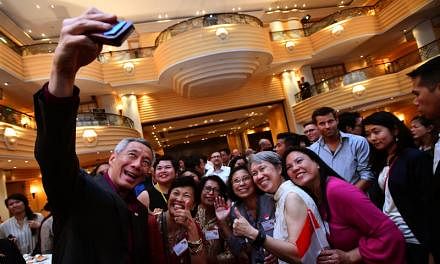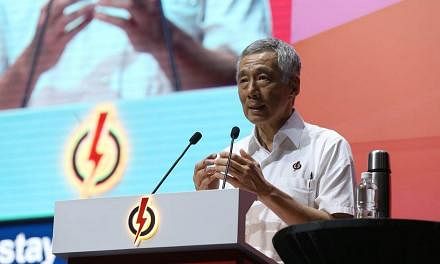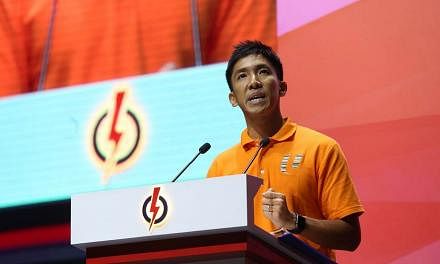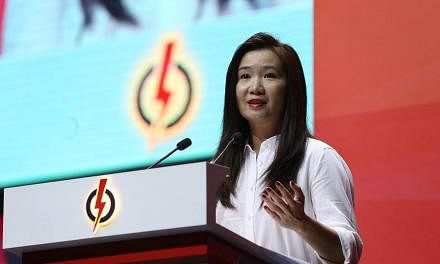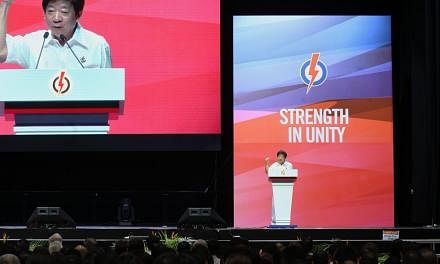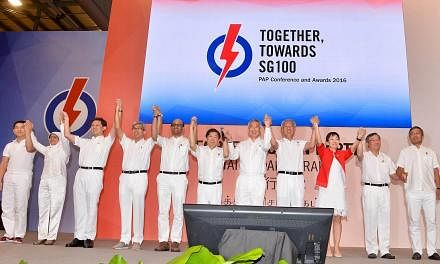SINGAPORE - The longstanding "symbiotic relationship" between the People's Action Party (PAP) and the labour movement will become even more crucial as workers face economic disruption, said Prime Minister Lee Hsien Loong on Sunday (Nov 19).
This partnership must be nurtured at the leadership level, which is why PM Lee said he has asked younger ministers to work more closely with the National Trades Union Congress (NTUC).
Each fourth generation minister will take on a specific partnership with NTUC, and younger MPs will also be involved, he said, highlighting an announcement made at the NTUC's biennial conference last week.
"This will be a key testing ground for us to identify and develop future leaders, and to maintain the close partnership between the party and unions for succeeding generations," he said, speaking at the PAP's annual convention at Big Box in Jurong.
The PAP's beginnings were with the unions, said PM Lee, the PAP secretary-general.
Founding Prime Minister Lee Kuan Yew represented the postal workers' union as lawyer and spokesman at the postmen's strike in 1953, winning against the colonial government.
When he launched the PAP the following year, many of its founding members were unionists, including Mr Devan Nair and Mr Othman Wok.
The unionists carried the PAP into power, and many have stood for election on the PAP ticket - a practice that continues today, said PM Lee.
He added that since independence, the PAP government, unions and employers have worked together to make harmonious labour relations a lasting competitive advantage of Singapore - an advantage which has attracted investments and created jobs.
NTUC has helped to reach out to workers during difficult times, whether it is to encourage them to tighten their belts in a recession, or to step in and to prevent milk powder profiteering, he said.
The National Transport Workers' Union, for example, is playing an important role maintaining workers' morale and discipline in the ongoing push to improve rail reliability.
On its part, the PAP has always made policies with the workers' interests at heart, he said.
In the coming years, union leaders will need to work with the PAP government to help workers cope with economic disruption and job losses, he added.
This is "so that we can develop effective policies to help workers, to enable Singaporeans to weather the changes, and to do their new jobs better", said PM Lee.
He cited how older union leaders like Mr Cyrille Tan, who died on Nov 10 after some 30 years as a unionist, worked closely with the PAP government as they understood the relationship well.
NTUC sent a larger than usual contingent to this year's party convention.
One of the 240 who attended was union leader David Tay of the Creative Media and Publishing Union, who said in a speech that unionists and party activists can be more involved in each other's strategies and leadership training.
He also pointed to the long-standing social compact between the two organisations.
Instead of taking a confrontational approach, NTUC collaborates with the PAP-led Government, he noted.
It gathers feedback for effective and responsive governance, and mobilises support, including in times when tough decisions need to be made, he said.
In turn, the Government supports the NTUC's right to organise working people and support social enterprises which provide affordable goods and services. It has also enacted pro-worker laws and training support, he said.
Mr Tay, a Singapore Press Holdings employee, highlighted how NTUC has evolved from focusing purely on industrial relations and salary negotiations.
It now helps workers upgrade their skills to cope with economic transformation, and links those who are retrenched to new jobs.
Going forward, NTUC and PAP can participate in each other's work plan seminars, he said at the event at Big Box in Jurong.
"Coming together to strategise on joint projects may allow us to better understand the concerns and aspirations of all Singaporeans," he added.
He suggested an induction programme to help unionists and PAP activists understand each other's organisations better, as well as joint dialogues such as a PAP-NTUC policy forum, joint learning journeys and exchange programmes.
Unionists could help out at meet-the-people sessions and PAP activists could help out at NTUC events, he added.
